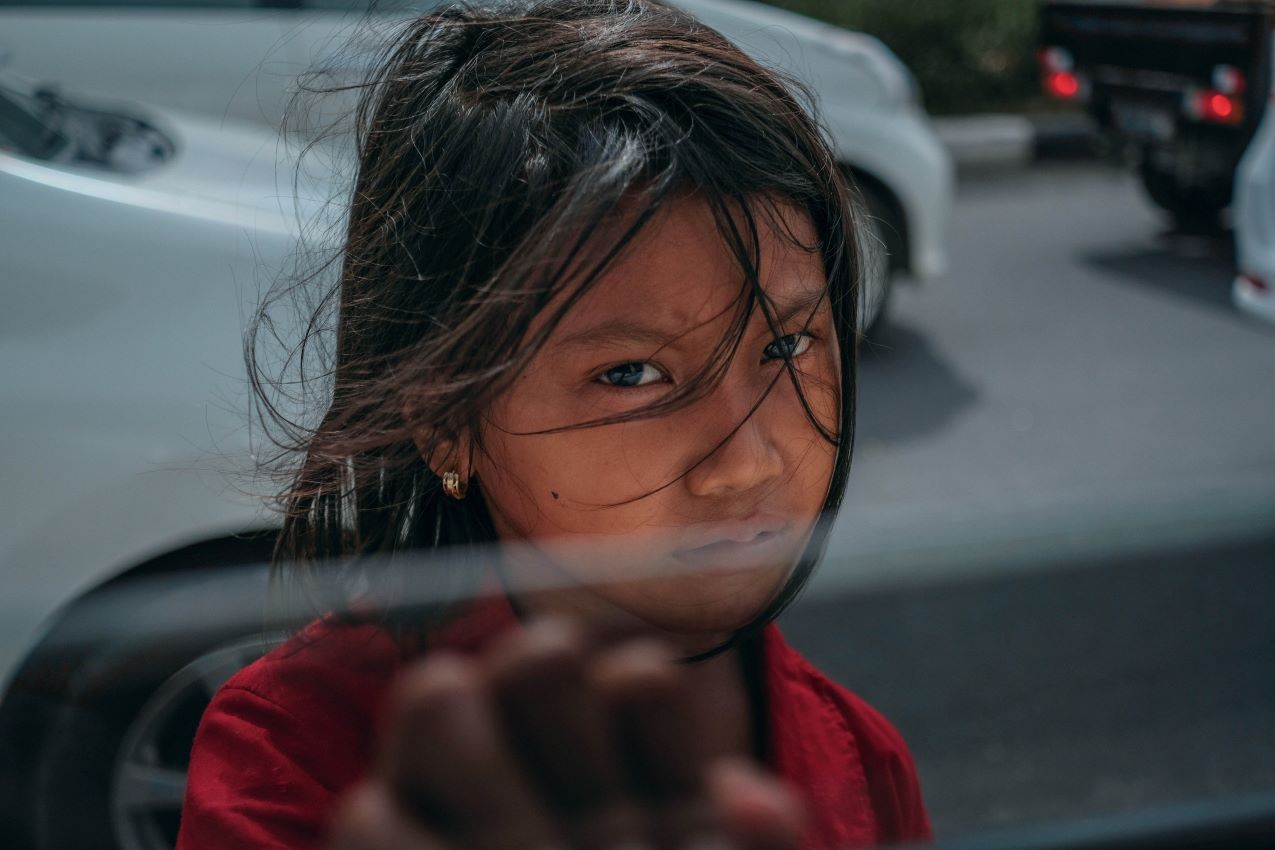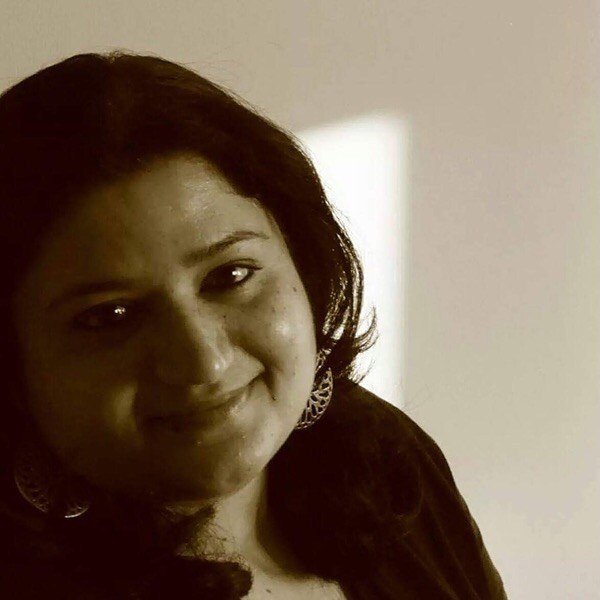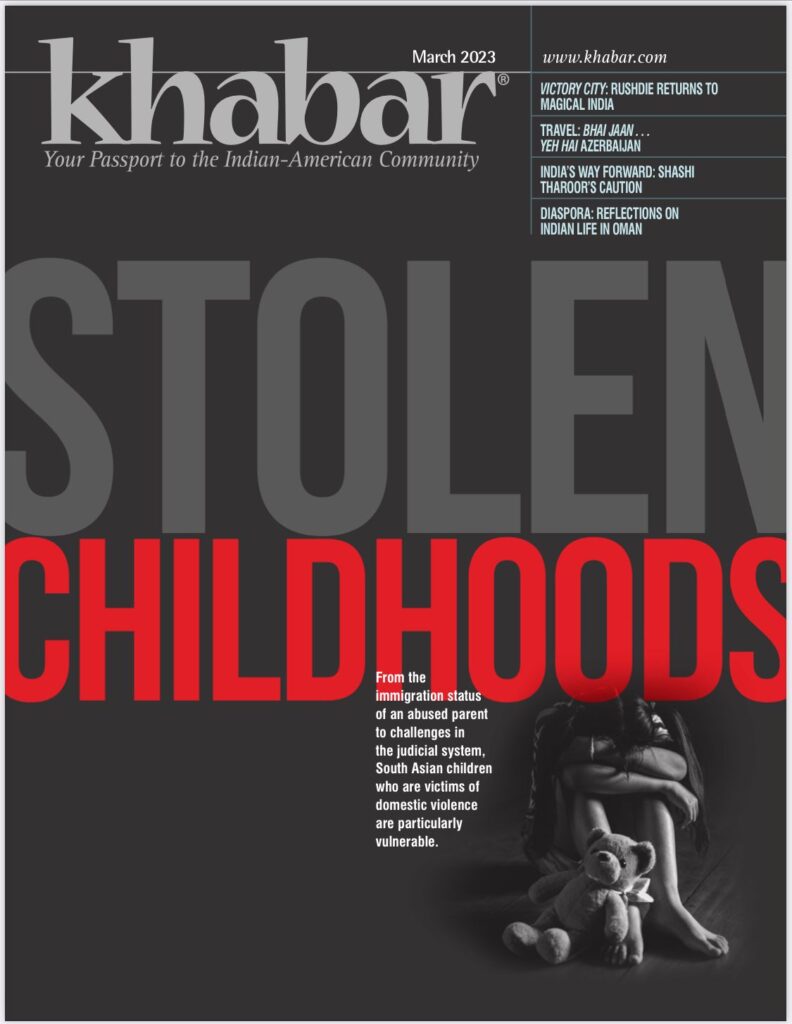For her March, 2023 cover story‘Stolen Childhoods,’ Khabar magazine’s city editor Pooja Garg focused on children who are witnesses to domestic violence and often victims themselves. EMS spoke with Garg and Khabar Editor-in-Chief Parthiv Parekh to discuss the challenges of reporting on an issue which is deeply stigmatized in South Asian American culture.
Khabar magazine — which celebrated its 30th birthday last year — is based in Atlanta, Georgia. It serves South Asian American communities primarily in Georgia, Alabama, Tennessee, and South Carolina.
Khabar is one of the few ethnic media publications that still produces a print edition.
When we think of domestic violence, we generally think of the impact to women. We rarely think about the impact to children. Pooja, yours is a very unique story which explored an entirely different angle of this issue. What brought you to this story?
It actually hits very close to home. I am a domestic violent survivor myself. I think it’s also a tribute to my own child.
My own journey with domestic abuse started quite early in my “love” marriage. But I was in denial for a long time. I was a successful journalist in India and I could not accept that what was happening to me had a name. It took many years and a hospital visit in the US — where the counselor showed me the wheel of power and control with its cycle of honeymoon phase to abuse phase — that I began to see my life in black and white.
Why do children need to be part of the conversation around domestic violence?
Children are carrying that inter-generational trauma and the cycle of abuse forward. It’s only when we care for them now that we have a chance of breaking the cycle and not letting it perpetuate further. If we are aware now, we are able to break that cycle and also to help them heal.
For children, the damage is deeper, because it’s at a very early formative stage where they’re still growing.
What was the most important thing you learned from your reporting?
The most important thing that I learned from reporting this story was that we all have a choice to become aware and break the cycle of inter-generational abuse, to create better future for our children, and to help our children heal from trauma through positive childhood experiences.
Not all choices may be within the grasp of many who are facing these challenges now, but becoming aware is always a choice we can make, knowing there is the ability to make other choices, and readying ourselves for when the opportunity comes.
As you know, in South Asian culture, we do not talk about issues like these. How did you get women and children to open up to you?
I think I had an undue advantage because of my own experience. I was open to sharing that with survivors as a way of connecting with them.
We had three month-long storytelling workshops with survivors. And during that, it became not just them telling my story, but me sort of holding their hand through that journey where I said: ‘yes, I know what you went through, and I can relate to this. And, yes, this happened to me, too.’ And I think that was a moment for them where they felt that they could connect for sure, they felt they could trust me more.
**
This was a tightrope between advocacy and journalism, really. It wasn’t exactly an all out journalism process. I had to be both an advocate as well as a journalist. It was hard to draw a line sometimes where you are trying to protect survivors but also get them to open up.
I think a lot of survivors just wanted to share the story when they realized they were not alone in this. And they felt that it could make a difference in other people’s lives.
Parthiv, so much of what we do as community journalists is in fact advocacy. Is there conscious intent by Khabar to be an advocate for the community?
We want to be a platform where people can talk about the issues our community does not talk about, in the way it was done in this cover story and other cover stories. We do it in a non threatening way. Even the survivors who spoke to us, we kept them anonymous. They were able to make their story available to the public, and know that it would do some good, but at the same time, they did not have to worry about protecting their privacy.
We have done spotlight features on trans women. We have done LGBTQ cover stories. We have covered divorce and child abuse and domestic violence, because the whole idea is we don’t want to shy away from these topics which do need to be talked about.
We are not advocacy magazine, but we are very happy when that does happen as a byproduct. It does happen because when you want to do content which is meaningful, which can touch the community, you can’t avoid advocacy. It’s going to happen as a natural byproduct.
Pooja, what would you like to see as an impact of your reporting?
We need more training and more cultural sensitivity, a lot of training in domestic violence cases specifically.
We have a very small pool of advocates who are working right now in Atlanta. I think that needs to grow. We need more avenues for community intervention. Right now, we have very limited avenues for that. And we need to have more conversations, more awareness, for sure.
We need to definitely have a uniform definition of child abuse. I see California laws and how they define child abuse versus how they define it here in Georgia: there’s a big difference. And in fact, one of the survivors I spoke to, she moved to California just before she filed a case because she felt that her children would be better protected when she files for divorce in that state.
Parthiv, last word?
We’re very happy that we have this platform where we can make an impact and tell these stories. And we’re very happy that we have on our team people like Pooja, who comes with a lot of integrity to what she does. So I wasn’t surprised at all by how good the article turned out to be.







